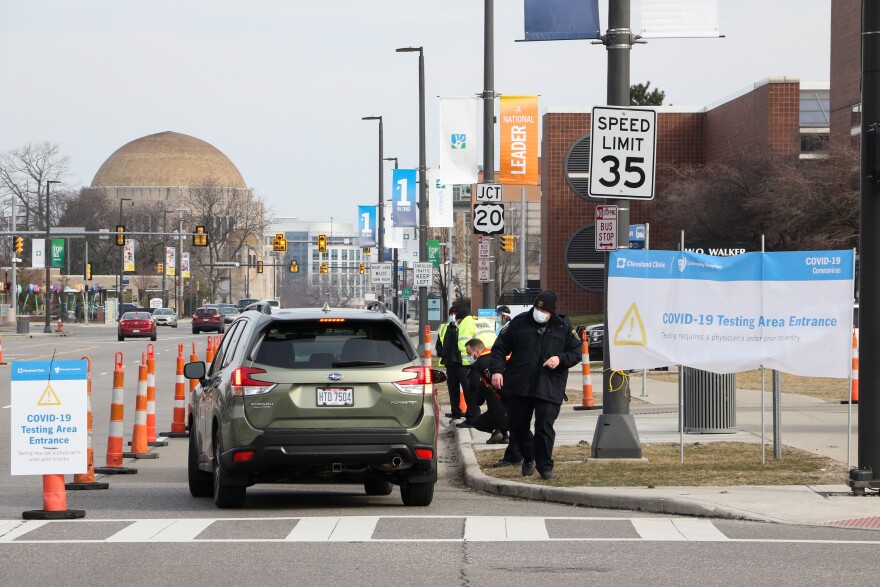For Carlos Del Rio, it started last week with a headache that felt like a hangover.
“And then the next day it felt like I had swallowed a glass full of sand,” Del Rio says. “My throat was incredibly raw, like, my eyes were tearing it was so raw.”
Del Rio is asthmatic, so he’s at higher risk of becoming severely ill with COVID-19 coronavirus, which attacks the upper respiratory system. The World Health Organization lists asthma among other pre-existing conditions like diabetes and heart disease that could make someone more vulnerable.
So Del Rio called his primary care doctor. And his primary care doctor told him to call the Ohio Department of Health’s coronavirus line.
“When I called at 9:30 in the morning, they said, 'We’re open every day from 9-5,'” he says. “And then there was an immediate follow up message that said, 'We are currently closed due to call volume.' So I’ve tried back each day, and when I call the number, it says, 'User busy.'”
To be safe, Del Rio is functioning under the assumption that he has COVID-19, as recommended by health officials. He called people he was in contact with before he isolated himself, and he’s avoiding contact with his two young kids and his wife.
But people experiencing symptoms like Del Rio are not supposed to call the Ohio Department of Health phone number for help with testing. Instead, the department says people with symptoms should call their primary care doctor, if they have one.
If someone has mild symptoms, the physician should instruct them to self-isolate at home. If the clinician decides testing or treatment are needed, the doctor then orders a test.
“I really would ask my fellow citizens in Ohio not to fixate on testing,” said Gov. Mike DeWine in a Wednesday p. “This is understandable, but as we have said all along, the vast majority of Ohioans who have symptoms do not need to get tested for the coronavirus.”
That advice comes, in large part, because testing remains scarce in the state.
“We're trying to use it for the most high risk,” says Amy Acton, director of the Ohio Department of Health. “So many people might be told you might have it. Many of us will end up having COVID and will be asked just, you know, don't even get tested. You know, stay home and ride it out like the flu if you're healthy.”

If approved for a test, patients will be linked with a nearby testing center – many local hospitals are setting up drive-through testing sites.
Ohio State’s Wexner Medical Center has outdoor testing stations, but it’s only available to patients of the health system who are pre-approved for a test. It’s unclear what Mount Carmel Health System and Ohio Health, the other major hospital chains in Central Ohio, are planning.
Acton says if someone is not approved for a test, but their symptoms get drastically worse, they should go to the emergency room. Even still, she encourages people to call ahead before going to the hospital.
“If you really start to have difficulty breathing, no matter who you are, even if you were previously healthy, that's when you take action, you do something about it,” Acton says.
After several days of calling, Del Rio finally reached the Ohio Department of Health. They redirected him back to square one, telling him to call his primary care physician again.
He did that, and eventually he was added to a list to get a test. But he says he still isn’t sure where or how to access it.
The Ohio Department of Health makes the following recommendations to protect yourself from illness:
- Wash hands often with soap and water for at least 20 seconds; dry hands with a clean towel or air dry hands.
- Use alcohol-based hand sanitizer when soap and water are unavailable.
- Cover your mouth with a tissue or sleeve when sneezing or coughing. Avoid touching your eyes, nose, or mouth with unwashed hands.
- Stay home when you are sick.
- Avoid contact with people who are sick.
Ohio's coronavirus call center is open to answer questions from 8 a.m. to 9 p.m. daily. The hotline number is 1-833-4-ASK-ODH or 1-833-427-5634. More information is available at coronavirus.ohio.gov.




